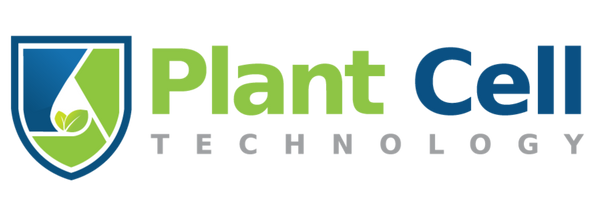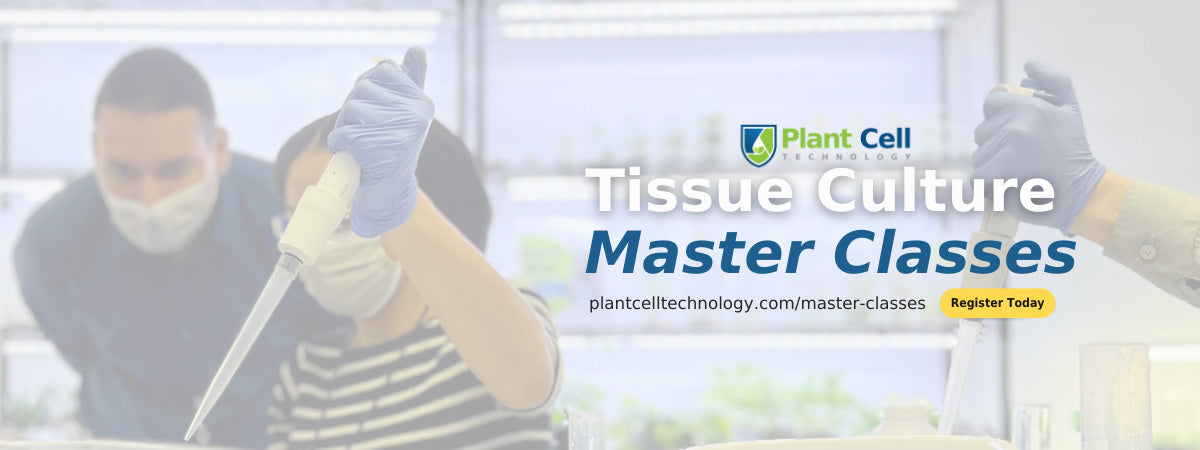
Advantages and Disadvantages of Plant Tissue Culture
As a content and community manager, I leverage my expertise in plant biotechnology, passion for tissue culture, and writing skills to create compelling articles, simplifying intricate scientific concepts, and address your inquiries. As a dedicated science communicator, I strive to spark curiosity and foster a love for science in my audience.


Tissue culture is beneficial for developing countries looking to increase crop yield, a private at-home grower interested in producing consistent quality, as well as businesses looking to produce exact replicas of a species for profit.
What is Plant Tissue Culture?
Plant Tissue Culture is a process that uses plant material in a growing medium to grow new platelets. The initial plant material is cultured and developed in a specific and tightly controlled environment.
Otherwise known as micropropagation, the Tissue Culture Process helps you to grow multiple uniform plants in quick succession.
This process is beneficial for developing countries looking to increase crop yield, a private at-home grower interested in producing consistent quality, as well as businesses looking to produce exact replicas of a species for profit.
While the process is simple, there are a few key factors that need to be in place. Without the proper sterile environment and growing medium, the tissue culture process is unlikely to be successful.
Once the new plants have been successfully propagated, they are transferred into a more natural environment, either a nursery or a greenhouse. This process is usually much quicker, and growers can produce many plants in a short amount of time. This may sound too good to be true, so what's the catch? Let's take a look at the advantages and disadvantages of the tissue culture process.
Advantages of Tissue Culture
There are several advantages to using the tissue culture process. We already mentioned its effectiveness in helping developing countries to increase food production, but what are some other advantages that may be relevant to you?
- The new plantlets can be grown in a short amount of time.
- Only a small amount of initial plant tissue is required.
- The new plantlets and plants are more likely to be free of viruses and diseases.
- The process is not dependent on the seasons and can be done throughout the year.
- You need only a relatively small space to perform the process (ten times the plants in one-tenth of the space).
- On a larger scale, the tissue culture process helps to supply the consumer market with new subspecies and variety.
- People looking to cultivate challenging plants such as specific breeds of orchid find more success with the tissue culture process than traditional soil.
Related: Plant Growth Regulators in Tissue Culture

Disadvantages of Plant Tissue Culture
While tissue culture presents numerous benefits, it is not exempt from certain limitations.
- Tissue culture can require more labor and cost more money in building the facility and equipping the lab with all the instruments and chemicals.
- There is a chance that the propagated plants will be less resilient to diseases when grown in outside conditions due to the type of environment they are grown in.
- It is imperative that, before being cultured, the material is screened; failure to pick up any abnormalities could lead to the new plants being infected.
- While the success rate is high if the correct procedures are followed, success with the tissue culture is not a guarantee. That's why accurate protocols are necessary to grow plants in tissue culture setting, which can be laborious when you try to create one working protocol by yourself.
- Contamination is the major issue in tissue culture setting. Plants can get infected by bacteria, fungi, and viruses. That's why all measures should be taken and PPE kit should be used while performing tissue culture in your lab.
- Tissue culture is an advanced technique and require some advanced knowledge and practice for anyone to get started in the field.
As you can see, the advantages do seem to outweigh the disadvantages. Sure, you may have to spend a bit more money to get your DIY tissue culture going, but the rewards certainly outweigh the initial cost. So, let's take a look at the Tissue Culture Process and see if we can break down the complicated terms into something a little more digestible.

Types of Tissue Culture Technique
Tissue culture is a technique in which healthy tissues are extracted from living matter or organisms. In plant tissue culture, this could be either the leaves or other parts of the plant- depending on the protocol.
Based on the explant (starting material/plant tissue used to grow plants), tissue culture is classified into the following types:
- Callus Culture: A callus refers to a cluster of undifferentiated cells with the remarkable ability to give rise to various plant parts. When the plant tissues derived from any plant organ are artificially induced in laboratory settings, they form callus, which further give rise to different plant organs, roots and shoots.
- Seed Culture: Seed culture is a form of tissue culture widely utilized in the cultivation of various plants, including orchids, in a lab environment using seeds as an explant.
- Protoplast Culture: A protoplast is a plant cell lacking a cell wall. In this technique, the cell wall of plant cells is eliminated through mechanical or enzymatic means. The resulting protoplasts are purified and subsequently, under controlled conditions, the cell wall is regenerated before transferring them to appropriate media for further growth into a complete plant.
- Meristem Culture: Meristem culture involves the isolation of the meristematic region, such as shoot tips, from plants and its transfer to a growth medium containing nutrients, vitamins, and plant hormones. This technique promotes cell division and tissue differentiation in the cultured cells. Meristem culture finds diverse applications, including the production of disease-free plants, regeneration of complete plants, generation of transgenic and haploid plants, crop enhancement, and preservation of germplasm.
- Embryo Culture: Embryo culture involves the isolation and cultivation of either immature or mature plant embryos to support their development into complete plants. Instead of individually sterilizing the embryos, this method involves sterilizing the organ (such as ovule, seed, or fruit) from which the embryos are derived and utilizing it in the culture process.
- Ovary Culture: The technique involves culturing fertilized or unfertilized ovaries of plant species in a suitable environment to facilitate their development into complete plants. This method, also known as gynogenesis, is primarily employed to overcome barriers before and after fertilization. Additionally, it has been utilized to achieve interspecific hybrids.
- Anther/Pollen culture: Pollen/anther culture is a technique in plant biotechnology where pollen grains or anthers (the male reproductive parts of flowers) are isolated and cultured in a nutrient-rich medium. This method allows for the development and regeneration of haploid plants or callus tissues from the cultured pollen or anther cells. It is commonly used in plant breeding and genetic studies to produce new plant varieties or to study the behavior of plant cells in a controlled environment.

What Make Tissue Culture So Great?
Tissue culture can be used in the reproduction of a wide variety of species and has many practical applications.
By using the tissue culture process, a plant's yield can be increased dramatically, and in a short amount of time. The plant can also be genetically altered so that it becomes immune to certain diseases and viruses. The genetic modification enables growers to ensure that plants carry very specific characteristics. In many cases, businesses and individuals will propagate the plants to carry specific traits that are more profitable for their business, or more desirable for personal use.
On another note, the tissue culture process can be used to promote the survival of a rare plant or endangered species.
Lastly, the tissue culture technique relies on the plant's innate ability to rejuvenate cells quickly, and these rejuvenated cells are copies most often referred to as clones. This technique can be used in a lab with expensive and complicated equipment, or it can be simply adapted for a home DIY.
INTERESTED IN LEARNING TISSUE CULTURE TECHNIQUES FOR YOUR PLANT BUSINESS? WE CAN HELP!
Plant Cell Technology is a leading provider of tissue culture products and services. It offers tissue culturists like you all the products you need to perform your in vitro experiments, ranging from MS media, agar, gellan gum, and culture vessels, to hormones and our proprietary product plant preservative mixture (PPM).
Further, if you’re stuck at any stage of the tissue culture process, you can use our consultation services to have a video chat with our tissue culture expert. He will give you an instant potential solution to your problems to keep your lab experiments running!
And, if you are new to the area and interested in growing your plant business using this amazing technology or want to learn this propagation technique as a hobbyist, you can join our tissue culture master class. The classes are curated to turn you into a tissue culture pro. They are leas by tissue culture experts in the area who teach you how to efficiently use the technology for your use.
Blog Categories
View by Level
Popular Blogs

How Samantha Bridges the Gap Between the Nursery and the Lab
The Introduction Building a tissue culture program from the ground up requires more than just scientific knowledge—it requires the grit...
Read More
Understanding The Synthetic Seed Technology
Introduction Let’s be honest: traditional plant propagation can be a logistical nightmare. If you’re working with recalcitrant species—those stubborn plants...
Read MoreSubscribe to Our Newsletter








Join the conversation
Your email address will not be published. Required fields are marked